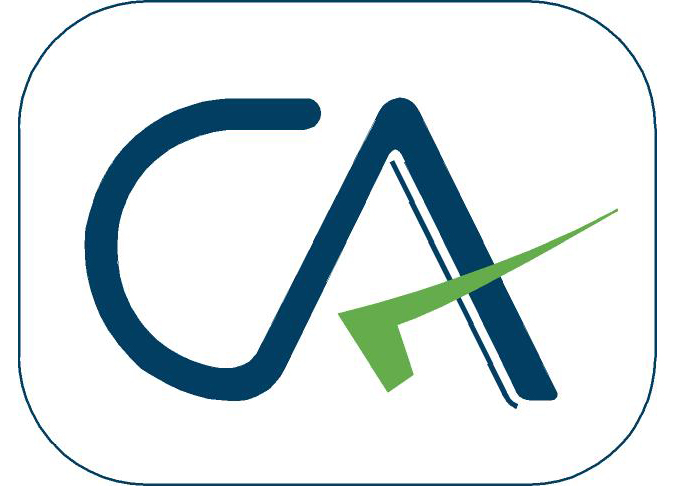(Section 43B h of Income Tax)

Section 43B of Income Tax Act’s, 1961 covers a list of expenses covered under the heading “Income from business and profession” which are available on payment basis. It lists expenses that are only allowable as a deduction from business income in the year that the money is paid, not in the year that the obligation to pay the costs arises, i.e. such expenses are not allowed on accrual basis.
This article will examine payments made to Micro and Small Enterprises registered under MSME Act, 2006 who are engaged in manufacturing shall only be deductible when money is paid. Another way to phrase it is that the deduction is made on payment rather than accrual.
Definition of Micro and Small enterprises is as follows:
Micro Enterprise: An enterprise who has investment in Plant and Machinery upto Rs 1 crore and Turnover upto Rs 5 crore.
Small Enterprise: An enterprise who has investment in Plant and Machinery upto Rs 10 crore and Turnover upto Rs 50 crore.
Analysis of Section 43B’s New Clause (H)
Section 43B of the Income Tax Act of 1961 would have a new clause (h) inserted by the Finance Bill of 2023. The aforementioned clause, which has been implemented through micro and small businesses, would have been included as a socio-economic welfare measure to ensure on-time payments. The Act’s Section 43B allows for certain deductions to be made on actual payments. The Finance Bill 2023 would have added a new clause to this section that would read as follows:
Any amount payable by the assessee to a MICRO or SMALL enterprise after the deadline outlined in Section 15 of the Micro, Small, and Medium Enterprises Development Act, 2006, is covered by Section 43B(h).
The aforementioned clause indicates that to qualify for the claim deduction of the amount liable to be paid to the micro and small enterprises, the payment must be made within the time frame specified in Section 15 of the Micro, Small, and Medium Enterprises Development Act, 2006.
The Micro, Small, and Medium Enterprises Act’s Section 15 Deadline
The MSME Development Act, 2006’s Section 15 clarifies that
“If a supplier provides any goods or services to a buyer, the buyer is required to pay the supplier on or before the date specified in writing by the supplier and himself, or, in the absence of a written agreement, on or before the designated day:
With the caveat that the time frame agreed upon in writing by the buyer and supplier may never be longer than 45 days from the acceptance date or the day of deemed acceptance.
As discussed above, it is clear that the buyer will make the payment as per the agreement between the supplier and the buyer. However, the buyer cannot defer payment for longer than 45 days from the acceptance date, also known as the day of deemed acceptance, which is the day the goods or services are accepted.
If no agreement is made between the parties for payment, then in that case last date of payment shall be 15 days from the date of Invoice of such purchases.

Negative consequences arise when MSMEs are not paid within the timeframe specified in Section 15.
The buyer will be ineligible for business expenses for income tax deduction if they are unable to pay the supplier of goods or services if the supplier is registered as a micro or small enterprise and engaged in manufacturing activities. This will be enforced by the new Finance Bill 2023, specifically clause (h) of Section 43B, in addition to the compensatory interest liability imposed by section 16 of the MSME Development Act, 2006. The results will be:
- Compensatory of the Interest: Regardless of anything stated in it, the buyer is responsible for filing the compound interest with the monthly rests on that amount from the appointed day to the supplier, or if it is from the date immediately following the date agreed upon, at three times the bank’s rate circulated through the Reserve Bank if any purchaser would be unable to perform the payment of the amount to the supplier as needed under section 15. The RBI repo rate as of is the RBI-notified bank rate for the same topic.
- Prohibition of Interest Payments Made as Compensation to MSMEs: To calculate income under the Income Tax Act of 1961, the interest payable amount or paid through any buyer under the provisions of Section 23 of the MSME Development Act, 2006, will not be permitted as a deduction.
- Expenditure Disallowance: Any amount due from the taxpayer for the expenses incurred or the payment for purchases made to the supplier registered as a micro or small enterprise will not be permitted if the supplier fails to make the payment within the allotted time frame as stated in MSME Development Act, 2006, cited above, Section 15.
Other deductions mentioned in Section 43B which are allowed on payment basis
- Any tax, duty, cesses, or fees paid by a current law may be deducted at the time of payment; this includes customs duties, GST, and other levies or cesses. The interest paid on these taxes is also deductible.
- Contribution to any recognized employee benefit fund: Before the deadline for depositing those funds or before the deadline for filing income tax returns, the employer may make a contribution to any recognized employee benefit fund, such as the PF fund, superannuation fund, or gratuity fund.
- Employee bonus or commission payable: This sum should represent the actual bonus or commission given to staff members, not dividends due to shareholders.
- Interest on loans taken out by State Financial Corporation or Public Financial Institutions in compliance with the terms of those loans.
- Interest on advances and loans from Scheduled Bank according to the terms of the loan
- Employee leave encashment offered by an employer
- Indian Railways payment
If the interests specified in clauses 4 and 5 are converted into a loan, this conversion does not result in the payment of deductible interest. As a result, it’s critical for anyone earning money from a business or profession and keeping mercantile accounts to be aware of the aforementioned provisions; otherwise, they might not be able to claim these deductions.
Is IT Section 43B(h) Beneficial or Injurious to the MSME Industry?
There is a lot of discussion surrounding the recently introduced clause (h) of section 43B of the Income Tax Act 1961, which will take effect from the Academic Year 2023–2024. This clause permits expenses to be incurred for either purchasing goods or receiving services from Micro and Small Enterprises, as defined by the Micro and Small Enterprises Act 2006, which is any establishment, under any name, engaged in the manufacture or production of goods, in any case related to any industry set in the First Schedule to the Industries (Development and Regulation) Act, 1951, or committed to providing any kind of service.
According to section 15 of the MSMED Act 2006, to be eligible for the deduction, the payment must be made within 15 days or, if there is a written agreement between the buyer and seller, within 45 days. If there is no written agreement, the payment cannot be made later than the 15th day of the supply of goods or services or the acceptance of the same, whichever comes first.
For a small business, the investment in plant and machinery should not exceed one crore, and the turnover should not exceed five crore. For a medium-sized business, the investment in plant and machinery should not exceed ten crores, and the turnover should not exceed fifty crores. Since trading enterprises are not included under the definition of “enterprise,” they are not eligible to receive the benefit.
The payment must be made within 15 or 45 days, depending on the situation, to claim the deduction; however, the section states that the deduction may be made even if it is made after the specified time frame if the money is received within the year or in the payment year provided that the bank files the monthly rests and compound interest three times a year by RBI guidelines.
